McGuinness Flint • Gallagher & Lyle - 6 Albums Mini LP SHM-CD Universal Music Japan 2016
McGuinness Flint • Gallagher "> Performer: McGuinness Flint ------------------------ Gallagher "> 1970 McGuinness Flint ● 1971 Happy Birthday, Ruthy Baby (Mini LP SHM-CD Universal Music Japan 2016) ------------------------ 1972 Gallagher And Lyle ● 1973 Willie And The Rapdog 1973 Seeds ● 1974 The Last Cowboy (Mini LP SHM-CD Universal Music Japan 2016) Info: Universal Music Japan Cardboard Sleeve (Mini LP) / SHM-CD / Limited Release Catalog SHM-CDs: UICY-77741~46 Made in Japan

McGuinness Flint • Gallagher & Lyle - 6 Albums Mini LP SHM-CD Universal Music Japan 2016
McGuinness Flint • Gallagher "> Performer: McGuinness Flint ------------------------ Gallagher "> 1970 McGuinness Flint ● 1971 Happy Birthday, Ruthy Baby (Mini LP SHM-CD Universal Music Japan 2016) ------------------------ 1972 Gallagher And Lyle ● 1973 Willie And The Rapdog 1973 Seeds ● 1974 The Last Cowboy (Mini LP SHM-CD Universal Music Japan 2016) Info: Universal Music Japan Cardboard Sleeve (Mini LP) / SHM-CD / Limited Release Catalog SHM-CDs: UICY-77741~46 Made in Japan
02 10, 2025
Third Ear Band / Curved Air: Progressive Rock Collection - Warner Music Japan 2015
Progressive Rock SHM-CD Collection Warner Music Japan 2015 Performer / Albums: Third Ear Band 1969 Alchemy ● 1970 Third Ear Band ● 1972 Music From Macbeth (SHM-CD Warner Music Japan 2015) ------------- Curved Air 1970 Air Conditioning ● 1971 Second Album ● 1975 Phantasmagoria (SHM-CD Warner Music Japan 2015) Info: Parlophone Records / Warner Music Japan Progressive Rock SHM-CD Collection Edition Series Catalog SHM-CDs: WPCR-16334~36 / WPCR-16299~301 Made in Japan Dynamic Range: 11 / 8 / 11 • 7

Third Ear Band / Curved Air: Progressive Rock Collection - Warner Music Japan 2015
Progressive Rock SHM-CD Collection Warner Music Japan 2015 Performer / Albums: Third Ear Band 1969 Alchemy ● 1970 Third Ear Band ● 1972 Music From Macbeth (SHM-CD Warner Music Japan 2015) ------------- Curved Air 1970 Air Conditioning ● 1971 Second Album ● 1975 Phantasmagoria (SHM-CD Warner Music Japan 2015) Info: Parlophone Records / Warner Music Japan Progressive Rock SHM-CD Collection Edition Series Catalog SHM-CDs: WPCR-16334~36 / WPCR-16299~301 Made in Japan Dynamic Range: 11 / 8 / 11 • 7
02 10, 2025
The Gods: 2 Albums Mini LP CD - 1968 Genesis / 1969 To Samuel A Son - EMI Music Japan 2009
Lossless Galaxy Release The Gods: 2 Albums Mini LP CD 1968 Genesis / 1969 To Samuel A Son EMI Music Japan 2009 Performer: The Gods Albums: -------------- ☆☆☆☆☆☆☆☆☆☆☆ -------------- 1968 Genesis EMI Music Japan Mini LP CD TOCP-70739 -------------- ☆☆☆☆☆☆☆☆☆☆☆ -------------- 1969 To Samuel A Son EMI Music Japan Mini LP CD TOCP-70740 -------------- ☆☆☆☆☆☆☆☆☆☆☆ -------------- Info: EMI Music Japan Inc. Cardboard Sleeve (Mini LP) / Reissue Masa Ito Collection / EMI Capitol Rock Deep Catalogues
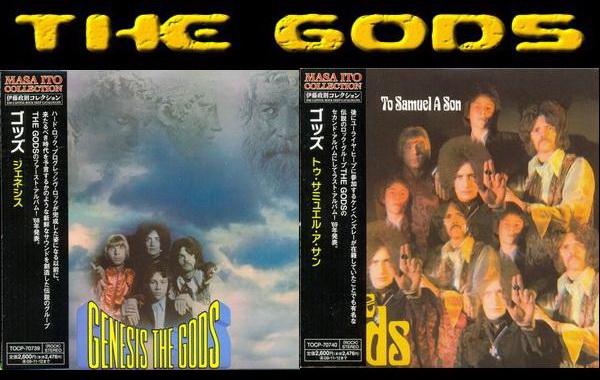
The Gods: 2 Albums Mini LP CD - 1968 Genesis / 1969 To Samuel A Son - EMI Music Japan 2009
Lossless Galaxy Release The Gods: 2 Albums Mini LP CD 1968 Genesis / 1969 To Samuel A Son EMI Music Japan 2009 Performer: The Gods Albums: -------------- ☆☆☆☆☆☆☆☆☆☆☆ -------------- 1968 Genesis EMI Music Japan Mini LP CD TOCP-70739 -------------- ☆☆☆☆☆☆☆☆☆☆☆ -------------- 1969 To Samuel A Son EMI Music Japan Mini LP CD TOCP-70740 -------------- ☆☆☆☆☆☆☆☆☆☆☆ -------------- Info: EMI Music Japan Inc. Cardboard Sleeve (Mini LP) / Reissue Masa Ito Collection / EMI Capitol Rock Deep Catalogues
02 10, 2025
Жанры
Lossless Galaxy Release
Русская музыка
--Поп
--Рок
--Панк
--Альтернатива
--Металл
--Рэп, Хип-Хоп, R'n'B
--Джаз и Блюз
--Фолк
--Шансон, Авторская песня
--СССР
Зарубежная музыка
--Pop
--Rock
--Hard Rock
--Progressive & Art-Rock
--Pop-Rock & Soft Rock
--Instrumental Rock
--Heavy, Traditional, Industrial Metal
--Power, Gothic, Sympho Metal
--Thrash, Speed, Groove, Modern Metal
--Death, Melodic Death, Doom, Dark Metal
--Black, Pagan, Folk, Viking Metal
--Alternative
--Punk
--Disco, Eurodance
--Rap, Hip Hop, R'n'B
--Reggae, Ska, Dub
--Jazz, Blues, Soul
--Folk, Country, Ethnic
--Electronic, Ambient, New Wave
--House, Techno, Trance
Другие жанры
--New Age, Relax, Meditative & Flamenco
--Chillout, Lounge, Downtempo, Trip-Hop
--Drum & Bass, Jungle, Breakbeat, IDM
--Classical / Классическая музыка
--Soundtrack
--Музыкальные сказки
Vinyl Rip
HI-Res / DVD-Audio / DTS
--SACD
--DSD
--DVD-Audio
Сборники Lossless-Galaxy
Альбомы 2022
Альбомы 2023
Альбомы 2024
Теги
1st Press 2022 2023 2024 2025 70... AOR Black Metal Blues Blues Rock Bootleg Series Classic Rock Death Metal Discography Exclusive for Lossless-Galaxy Folk Rock Fusion Hard Rock Heavy Metal Hi-Res Japanese Edition Jazz Jazz Rock lossless Melodic Death Metal Melodic Rock Modern Electric Blues Pop Pop Rock Power Metal Prog Rock Progressive Metal Progressive Rock Psych Rock Psychedelic Rock Rock SACD Symphonic Metal Thrash Metal Дискографии от KoGGaN
Архивы
Опрос
В каком формате хотели бы видеть релизы на сайте ?
 Автор: sirk, 30 декабря 2023, Комментариев: 2, Просмотров: 2 172
Автор: sirk, 30 декабря 2023, Комментариев: 2, Просмотров: 2 172Bobby Whitlock - There's A Will There's A Way (1972) (2013)
Artist: Bobby Whitlock
Title Of Album There's A Will There's A Way
Year Of Release: 1972/2013
Label (Catalog#) : Future Days [FDR 602]
Country: USA
Genre Rock/Blues Rock/Soul
Quality: FLAC (image + cue,scans)
Bitrate: Lossless
Quality: 01:10:29
Full Size: 520mb(+3%)
Title Of Album There's A Will There's A Way
Year Of Release: 1972/2013
Label (Catalog#) : Future Days [FDR 602]
Country: USA
Genre Rock/Blues Rock/Soul
Quality: FLAC (image + cue,scans)
Bitrate: Lossless
Quality: 01:10:29
Full Size: 520mb(+3%)
Tracks:
-------
1. Where There's a Will (Bonnie Bramlett, Bobby Whitlock) - 3:44
2, Song for Paula - 3:16
3. A Game Called Life - 4:15
4. Country Life - 3:06
5. A Day Without Jesus (Don Nix, Bobby Whitlock) - 3:24
6. Back in My Life Again - 3:31
7. The Scenery Has Slowly Changed - 3:52
8. I'd Rather Live the Straight Life - 2:29
9. The Dreams of a Hobo - 3:23
10.Back Home in England - 2:51
11.Tell the Truth (Eric Clapton, Bobby Whitlock) - 3:50
12.Bustin' My Ass - 3:31
13.Write You a Letter - 2:29
14.Ease Your Pain (Hoyt Axton) - 3:03
15.If You Ever - 3:18
16.Hello L.A., Bye Birmingham (Delaney Bramlett, Mac Davis) - 3:56
17.You Came Along - 3:04
18.Think About It - 3:09
19.Satisfied - 2:56
20.Dearest I Wonder - 3:49
21.Start All Over - 3:24
Personnel:
---------
Bobby Whitlock - Vocals, 12 String, Rhythm, Acoustic, Electric Guitar, Keyboards, Organ, Piano
Chris Wood - Flute
Bonnie Bramlett - Vocals
Delaney Bramlett - Guitar, Vocals
Eric Clapton - Bass, Electric Slide Guitar
Keith Ellis - Bass
Jim Gordon - Drums, Tabla
George Harrison - Guitar
The Edwin Hawkins Singers - Vocals
Jim Keltner - Drums
Bobby Keys - Saxophone
Los Angeles Symphony Orchestra - Strings
Jerry McGee - Guitar
Don Poncher - Drums
Jim Price - Trombone, Trumpet
Carl Radle - Bass
Rick Vito - Guitar, Slide Guitar
Klaus Voormann - Bass
All thanks to original releaser
-------
1. Where There's a Will (Bonnie Bramlett, Bobby Whitlock) - 3:44
2, Song for Paula - 3:16
3. A Game Called Life - 4:15
4. Country Life - 3:06
5. A Day Without Jesus (Don Nix, Bobby Whitlock) - 3:24
6. Back in My Life Again - 3:31
7. The Scenery Has Slowly Changed - 3:52
8. I'd Rather Live the Straight Life - 2:29
9. The Dreams of a Hobo - 3:23
10.Back Home in England - 2:51
11.Tell the Truth (Eric Clapton, Bobby Whitlock) - 3:50
12.Bustin' My Ass - 3:31
13.Write You a Letter - 2:29
14.Ease Your Pain (Hoyt Axton) - 3:03
15.If You Ever - 3:18
16.Hello L.A., Bye Birmingham (Delaney Bramlett, Mac Davis) - 3:56
17.You Came Along - 3:04
18.Think About It - 3:09
19.Satisfied - 2:56
20.Dearest I Wonder - 3:49
21.Start All Over - 3:24
Personnel:
---------
Bobby Whitlock - Vocals, 12 String, Rhythm, Acoustic, Electric Guitar, Keyboards, Organ, Piano
Chris Wood - Flute
Bonnie Bramlett - Vocals
Delaney Bramlett - Guitar, Vocals
Eric Clapton - Bass, Electric Slide Guitar
Keith Ellis - Bass
Jim Gordon - Drums, Tabla
George Harrison - Guitar
The Edwin Hawkins Singers - Vocals
Jim Keltner - Drums
Bobby Keys - Saxophone
Los Angeles Symphony Orchestra - Strings
Jerry McGee - Guitar
Don Poncher - Drums
Jim Price - Trombone, Trumpet
Carl Radle - Bass
Rick Vito - Guitar, Slide Guitar
Klaus Voormann - Bass
All thanks to original releaser
Внимание! У Вас нет прав для просмотра скрытого текста.
Изменил: sirk по причине: RE-UP
Похожие новости:
Комментарии (2)
Добавить комментарий!
Информация
Посетители, находящиеся в группе Гости, не могут оставлять комментарии к данной публикации.
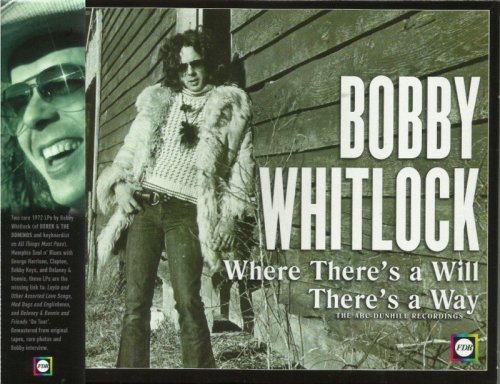

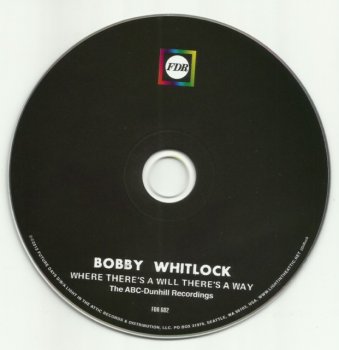
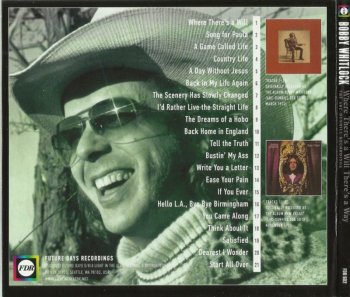
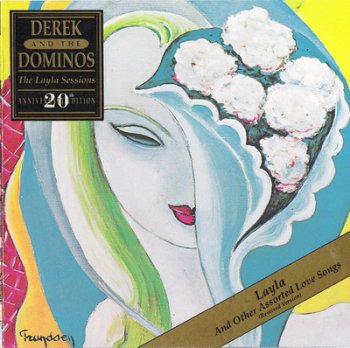
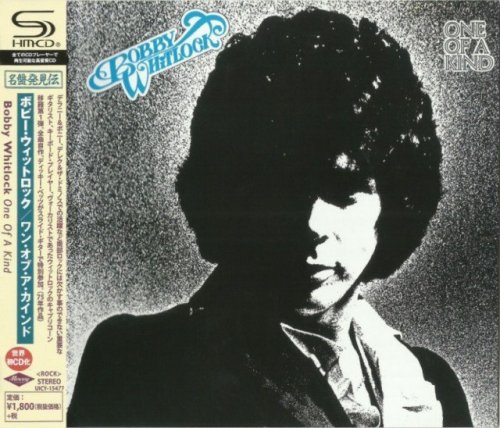
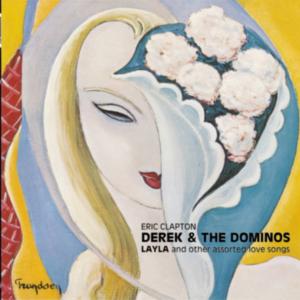
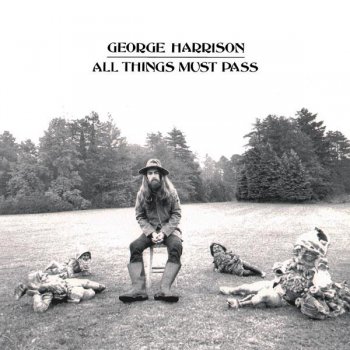
![Derek & The Dominos - Layla And Other Assorted Love Songs [40th Anniversary Deluxe Edition, 2CD] (2011)](/uploads/posts/2013-04/1364991629_215a04969efd071798c4a8812663a832.jpg)